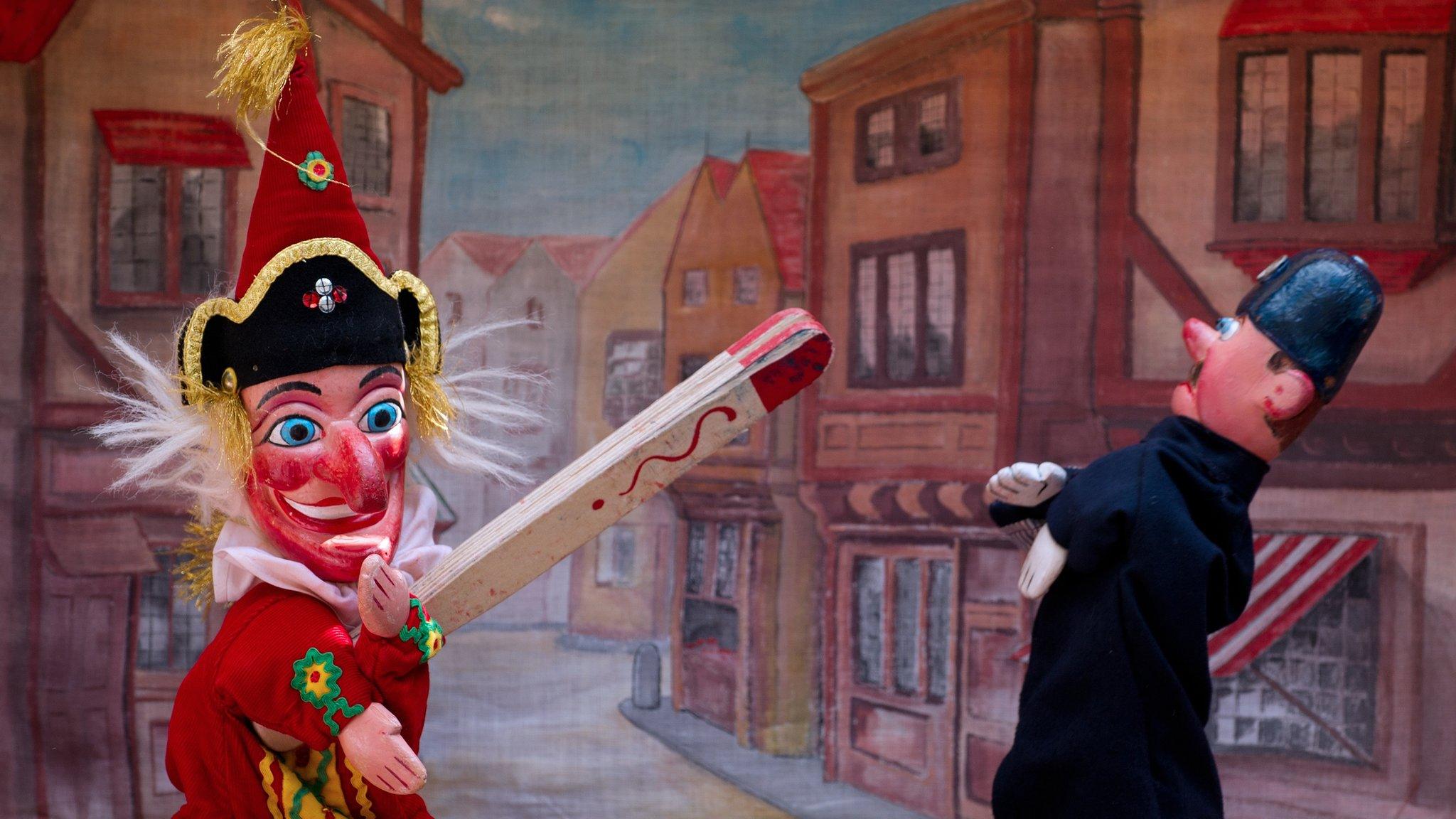Jeremy Corbyn's first Prime Minister's Questions: What to expect
- Published
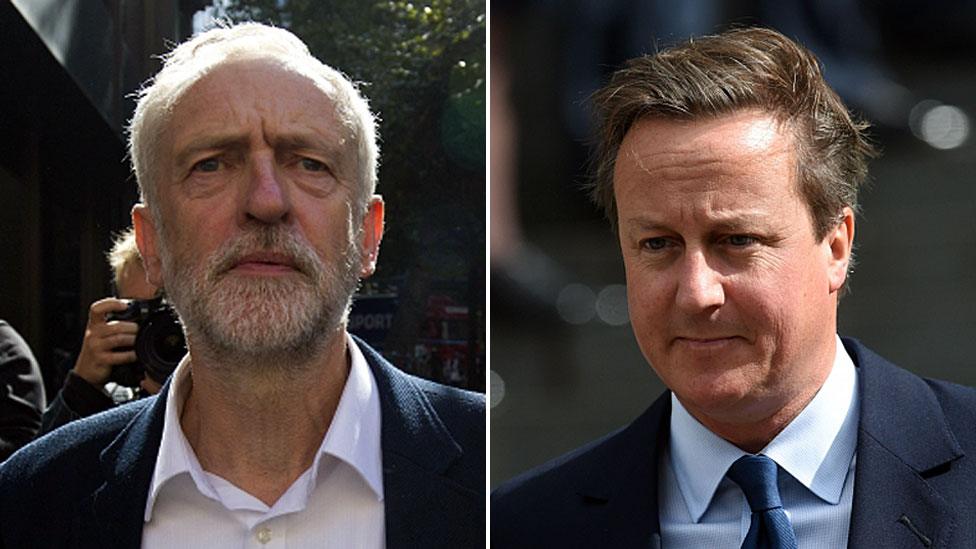
New Labour leader Jeremy Corbyn is preparing to face his first Prime Minister's Questions in the House of Commons - what is it going to be like?
Entering the big league
Uniquely, in the democratic world, Britain's political leaders have to face a baying mob of their opponents every week, as they debate questions on every conceivable issue. They all hate it. They all fear it. But even those like Tony Blair and David Cameron, who have questioned the point of having to take part in a weekly pantomime, or Punch and Judy show, admit that it serves a purpose. It keeps them honest. Rightly or wrongly, the half-hour session at mid-day on a Wednesday, when the Commons is sitting, is seen as a test of a leader's ability to lead. As Leader of the Opposition, Jeremy Corbyn will get six questions to the prime minister in which to make his mark.
You can follow prime minister's questions on the BBC News website's live page, BBC2's Daily Politics and the News Channel from mid-day.

How will Jeremy Corbyn handle it?
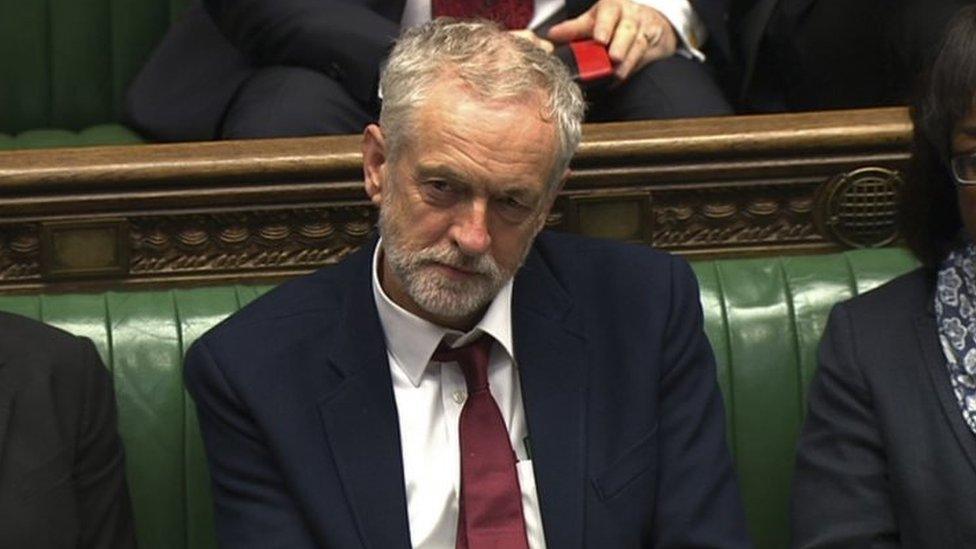
The new Labour leader knows all about Prime Minister's Questions. He has witnessed it hundreds of times and asked a few questions himself over the years. But always from the safety of his regular seat on the back row of the Labour benches. Moving forward four rows to the front bench is a few small steps, but will be one giant leap for a man who has never stood at the despatch box before. It is certain to be a nerve-shredding experience.

How has he been preparing?
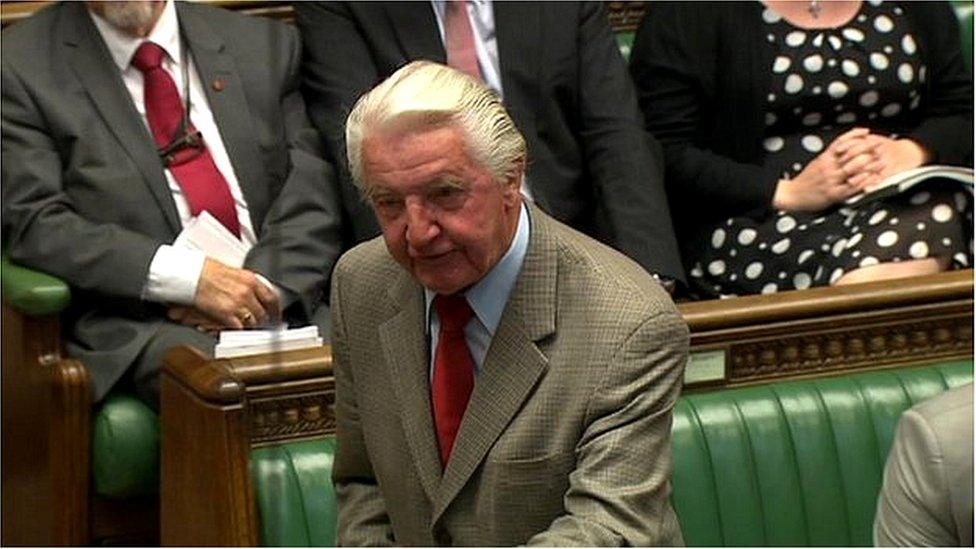
Dennis Skinner knows how to make an impact in the Commons
Mr Corbyn is a seasoned public speaker, used to thinking on his feet, but he will never have faced an audience as hostile as this before with his performance placed under so much scrutiny. The biggest challenge might be making himself heard above the baying, cackling wall of sound coming from the Conservative benches. Speaker John Bercow could be in for a busy session. Mr Corbyn has been chatting to predecessor Ed Miliband about how to handle it and plans to get advice from veteran left-wing firebrand Dennis Skinner, according to Channel 4's Michael Crick., external

What could go wrong?
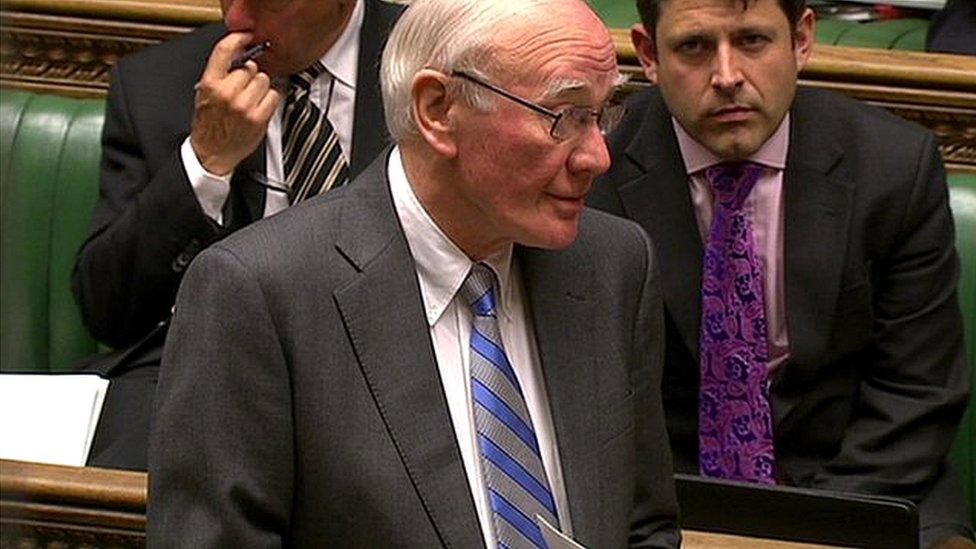
Sir Menzies Campbell found PMQs a bruising experience
A stumbling performance would be bad for Mr Corbyn. But he could probably get away with it. What would be worse - far worse - is laughter. Sir Menzies, now Lord, Campbell, a seasoned front bench performer, never really recovered from becoming the butt of a joke the first time he asked Tony Blair a question as Liberal Democrat leader. "It was a real bear garden," Lord Campbell told The Daily Telegraph, external. "They smell blood in the House of Commons so if you make a mistake or two they're trying to get you."

Could he triumph?
A full-throated attack on David Cameron on inequality, welfare cuts, the banks and the Tories' friends in City hedge funds is what many on the left have been yearning for. And - in the supercharged atmosphere of the Commons bear pit, where reasoned debate and nuance takes a back seat to theatre - it could work. Alternatively, Mr Corbyn could attempt to take the moral high ground, deploying his mild-mannered, deeply serious style to wrongfoot the prime minister. Bookmakers are taking bets on what he will ask David Cameron, with migrants and refugees favourite at 4/7, followed by trade union rights (4/1), global poverty (10/1) and EU membership (14/1). He has said PMQs is too confrontational and he will refrain from "repartee", focusing instead on serious issues.

How will David Cameron handle it?
The temptation will be to go for the jugular. He has plenty of ammunition. The prime minister used to ridicule Ed Miliband over his economic policies and links to the trade unions, suggesting he was a throwback to the strife-torn 1970s. Mr Corbyn will be an even bigger target. The prime minister may go easy on him for fear of appearing too arrogant and condescending. But don't be surprised to see a few old tricks coming out, such as asking Labour MPs to put their hands up if they support their new leader on policy issues such as Trident and Nato.

What is the point of PMQs?
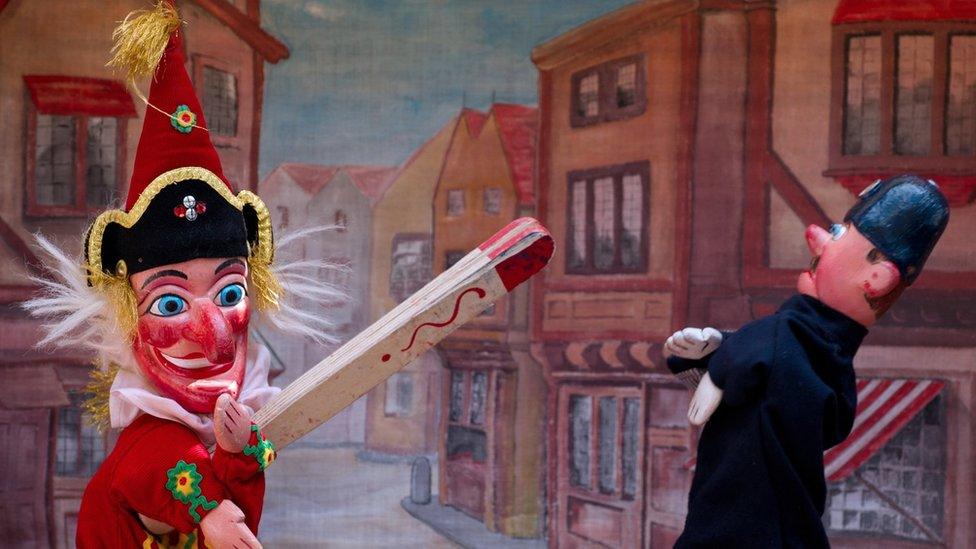
There are those that claim PMQs is a terrible advert for British politics. Foreign observers regard it with a mixture of amusement and horror. In contrast to most legislative chambers around the world the British House of Commons is not a semi-circle. It was deliberately set up for confrontation, with rows of opposing benches. And yet, despite complaints about its rowdy nature, it is the most watched political event of the week. It is the one chance ordinary, back bench MPs get to question the prime minister directly, to hold the government to account. OK, many of the questions are handed to them by party managers - and many of the answers are not answers in any recognisable sense of the word. But PMQs still delivers telling moments by the bucket load and occasionally a genuinely new policy revelation. It is also great theatre.

Will Jeremy Corbyn change the format?
Mr Corbyn has suggested that he would like other Labour MPs to have a turn at asking the questions, as part of the process of democratising the Labour Party. It is not clear whether he will be allowed to do this by Speaker John Bercow. Shadow business secretary Angela Eagle, who is also First Secretary of State, effectively his second-in-command, will take Prime Minister's Questions when he is unavailable. The new Labour leader has crowd-sourced the questions for his first appearance - receiving more than 40,000 emailed suggestions from supporters. This might turn out to be a shrewd move - David Cameron will find it harder to dismiss questions from the public. Crowd-sourcing has been tried before, by Douglas Carswell, now UKIP's only MP but then a Tory backbencher, who asked for suggestions from bloggers for the first question to ask new prime minister David Cameron in 2010.

How did previous opposition leaders handle the first PMQs?
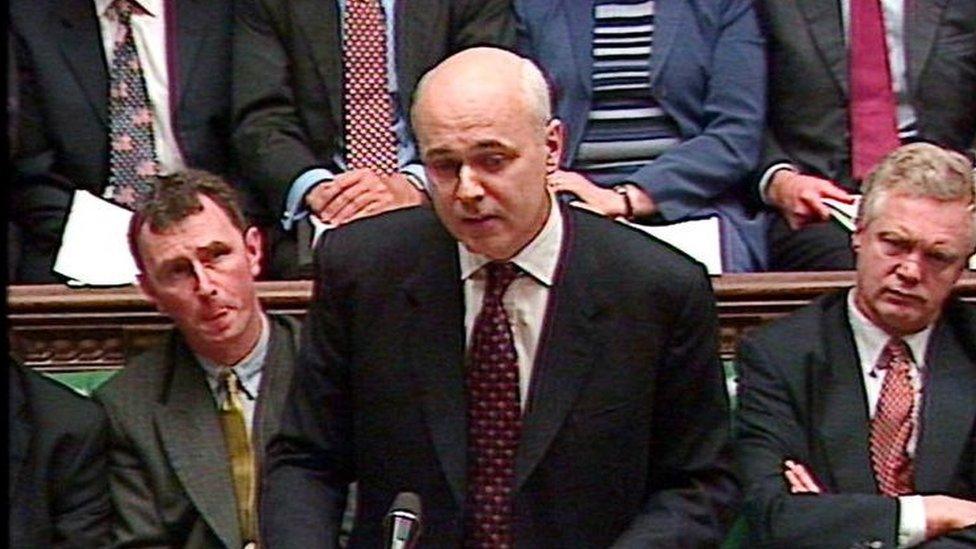
Iain Duncan Smith got a lot of flak for his performances
Most had a low-key start and there have been few slip-ups. In 2010, Ed Miliband went on the attack over government plans to scrap child benefit for higher-rate taxpayers. Mr Cameron had some pre-prepared lines, accusing him of being "the trade unions' man" and said he's "not red, it's Brown" but the new Labour leader was judged to have acquitted himself reasonably well. In 2005, David Cameron said he would support Tony Blair on some aspects of his education policy, knowing that many Labour MPs were against it - and he managed to score a big hit with his own side with a jibe at the Labour prime minister, gesturing towards him and saying: "He was the future once." Iain Duncan Smith would have a torrid time at PMQs during his brief tenure as Tory leader, with commentators calling his performances wooden, and focusing on his tendency to develop a frog in his throat at key moments. But his first PMQs, in which he chose to split his six questions into blocks of three, on Afghanistan and the NHS, passed without incident.

How did PMQs end up like this?
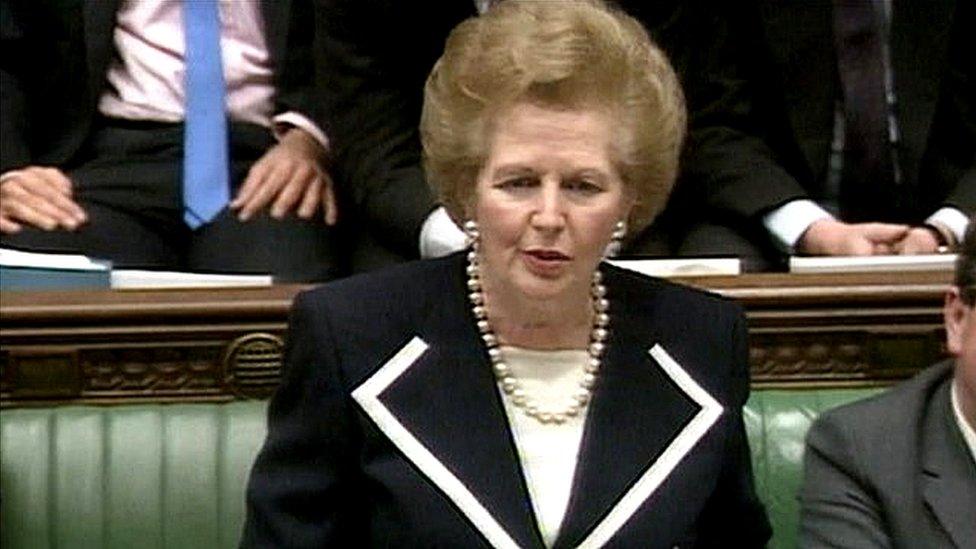
Lady Thatcher was determined to answer any, and every, question
Prime ministers have answered questions in Parliament for centuries but fixed time-slots were only introduced in 1881 after the election of William Gladstone. Backbench MPs were initially responsible for most of the questioning. Margaret Thatcher began the convention of prime minsters being expected to answer questions on every conceivable issue without advanced warning. Before she came to power in 1979, prime ministers would routinely hand difficult questions over to cabinet colleagues or admit their ignorance by promising a further statement. Tony Blair moved to the existing half-hour weekly format, from two fifteen minute sessions a week. The baying, shouting and hurling of abuse has been a feature of life in the Commons for centuries. Many thought it would disappear when television cameras were admitted to the chamber in 1989 but, if anything, it has become even more rowdy.

How are the questions chosen?
If an MP wants to ask a question, they have to enter the name on the Order Paper. The names are then shuffled and pulled out of a hat (not literally, of course). The Speaker will call on the MPs to ask their questions in alternating fashion, with an MP from the opposition benches usually being followed by one from the government side. MPs who are not lucky enough to be selected can bob up and down in their seats in an attempt to catch his eye. The opposition leader always gets six questions, which he or she can ask in blocks of three if they want, and the next largest party is normally granted two questions. At the moment this is the SNP.

Tony Blair on PMQs (from his autobiography)
"PMQs was the most nerve-racking, discombobulating, nail-biting, bowel-moving, terror-inspiring, courage-draining experience in my prime ministerial life, without question. You know that scene in Marathon Man where the evil Nazi doctor played by Laurence Olivier drills through Dustin Hoffman's teeth? At around 11.45 on Wednesday mornings, I would have swapped 30 minutes of PMQs for 30 minutes of that."
- Published18 February 2014
